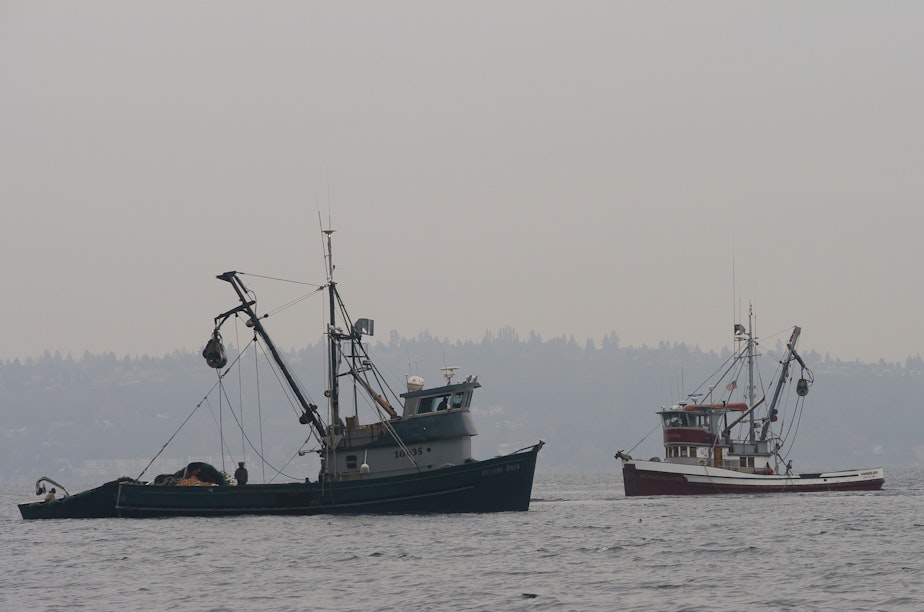The Sound That Sunk The Navy In 1955

Sixty years ago, in the middle of the night, a Navy ship struck a small fishing boat in Puget Sound. The Santa Maria was from Tacoma, and three fishermen on board died. The deaths of three working men made front-page news, and their widows sued the Navy, but it looked like they would get nowhere, until a sound saved the day for them.
At the time, navigators figured out the courses of the vessels around them by watching the movement of their lights. Post-war Puget Sound was thick with cargo ships, fishing boats and Navy ships. And it was a 328-foot Navy landing ship that sliced through the wooden Santa Maria off Point Wells, at the King-Snohomish County line.
The deadly collision touched off sensational media coverage and riveted the city. The widows’ suit alleged the Navy crew didn’t keep a proper watch or it would have seen the fishing boat. But the Navy said the fishermen brought disaster upon themselves by veering radically off course before the much larger landing ship could react.
The Coast Guard was set to decide who was to blame. But the U.S. attorney general prevented the Navy crew from testifying. This was a setback for the widows: Without the Navy’s side, the Coast Guard couldn’t find fault.
But the Coast Guard produced a report anyway, and in it gave credit to the Metal Marine Pilot, a simple automatic steering device that was aboard the Santa Maria and is still used today.
Sponsored
When a vessel is on course, the Pilot makes a rhythmic back-and-forth sound. It’s loud, but it’s constant, and the sound gives crew who are not on watch the permission to sleep. That’s what the sole survivor said he was doing before the watchman sounded the warning, just a few seconds before impact.
When the Pilot is off course, as the Navy claimed about the Santa Maria, the sound is jagged and disordered. “So when that thing goes, wide eyes are bright awake,” said Michael Freeman, whose family made and serviced the Metal Marine Pilot for two generations.
The Coast Guard said that if the Santa Maria’s crew had heard the Pilot sounding an off-course signal, they would have corrected course immediately.
That put a hole in the Navy's defense.
It settled with the widows and their children for what would have been $1.1 million in today’s money. It was much less than they’d asked for, but without the testimony of the Metal Marine Pilot there might have been nothing at all.
Sponsored
Today, vessels use devices tied to Global Positioning Systems to navigate. But the sound of the Metal Marine Pilot is still heard on many vessels, in Puget Sound and around the world.
It's clear the new technology is supplanting it. Michael Freeman has closed his repair shop. He says he will ship parts to vessels that need them until the last one is gone.
